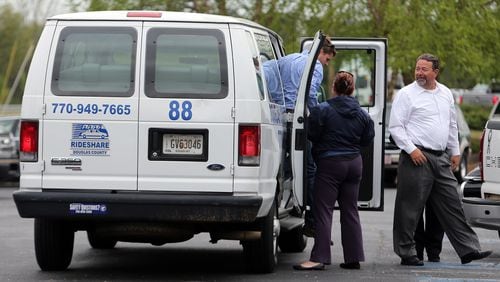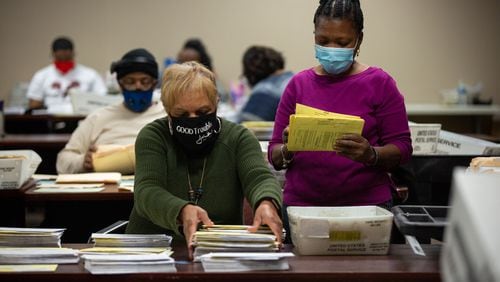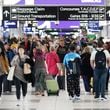Atlanta ranks 8th in the nation among cities with the greatest potential for improving traffic safety by carpooling.
Sounds like a no-brainer, right? Fewer people on the road equals fewer car crashes. But I often find that efforts to improve traffic safety center on engineering changes like improved signage or road design, or on better traffic enforcement.
So it was pretty interesting that a recent Deloitte study identified great potential for decreasing traffic accidents by swelling the ranks of carpoolers.
Specifically, the study said as many as 567 accidents per year could be avoided if the city of Atlanta did more to encourage commuters to ride together to work.
Currently 260,974 commuters carpool, but the study says as many as 395,154 more drivers could be sharing seats.
A boost in ridesharing could save Atlanta commuters up to $391 million in savings on car operating costs, 17 million hours in travel delays, 7 million gallons of fuel and $1.17 billion in road construction costs, the study found.
Credit: Andria Brooks
Credit: Andria Brooks
Unfortunately, carpooling has been declining in popularity for decades. In 1970, one in five commuters in this country carpooled. Today, it's just one in 10.
The state of Georgia has a program that uses incentives and marketing to encourage ridesharing in a 22-county area that includes metro Atlanta, called Georgia Commute Options. That program is paid for with $5.2 million per year in federal grants and about $1 million in state funding.
A regional commuter survey conducted last year found that the needle is moving in the right direction. There has been a 6 percent growth since 2010 in the overall use of commute alternatives like carpooling as well as bicycling, walking, teleworking and using transit, according to Cara Vojdani, a spokeswoman for Georgia Commute Options.
Those results were based on a telephone polling of 4,800 respondents who live in a 20-county area, including: Barrow, Bartow, Carroll, Cherokee, Clayton, Cobb, Coweta, DeKalb, Douglas, Fayette, Forsyth, Fulton, Gwinnett, Hall, Henry, Newton, Paulding, Rockdale, Spalding and Walton.







